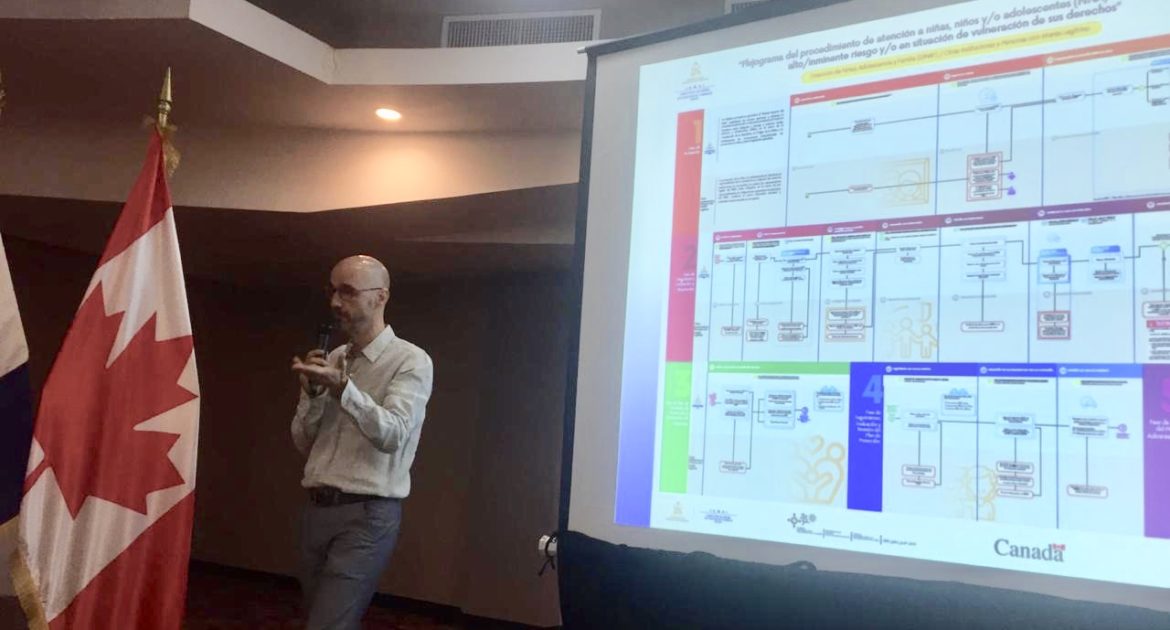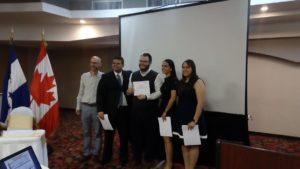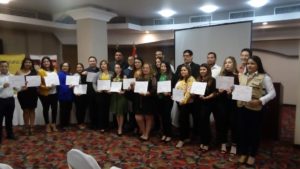
The IBCR, in partnership with Honduras’ Directorate for Children, Adolescents and Family (DINAF), presented on February 26th the main results and outcomes of its PRONINEZ project, which had capacity-building objectives for DINAF’s personnel.
 The results include the development of inter-institutional standard operating procedures (SOPs) for the prevention, protection, and restitution of rights for children and adolescents at high risk and/or that have had their rights violated in Honduras. They are accompanied by flowcharts representing the referral pathways to follow when dealing with children and adolescents in such situations, both for DINAF and for the most relevant institutions working in child protection in Honduras, such as the Justice sector, the National Police, the Special Prosecutor for Children, the National Institute for children in conflict with the law (INAMI), etc.
The results include the development of inter-institutional standard operating procedures (SOPs) for the prevention, protection, and restitution of rights for children and adolescents at high risk and/or that have had their rights violated in Honduras. They are accompanied by flowcharts representing the referral pathways to follow when dealing with children and adolescents in such situations, both for DINAF and for the most relevant institutions working in child protection in Honduras, such as the Justice sector, the National Police, the Special Prosecutor for Children, the National Institute for children in conflict with the law (INAMI), etc.
It is important to mention that the inter-institutional SOPs were developed in close collaboration with DINAF and various institutions, including the ones mentioned above, with the objective to hand out a referral guide available to all professionals in the country working directly with children, so that practices are improved and standardized while inter-institutional collaboration is optimized. IBCR has been developing SOPS in different countries for several years now in order to reinforce professionals’ commitment to the protection of children’s and adolescents’ rights all over the world.
 On that same occasion, certificates were delivered to 24 civil servants now officially certified as trainers for DINAF personnel after completing the “Training of trainers” course. With this new title, these trainers are now equipped to facilitate classes for their colleagues on the comprehensive care (prevention, protection, and restitution of rights) needed for children in situations or at risk of rights violation. The PRONINEZ project, initiated in 2016, was made possible with the technical and financial support of UNICEF and the Government of Canada.
On that same occasion, certificates were delivered to 24 civil servants now officially certified as trainers for DINAF personnel after completing the “Training of trainers” course. With this new title, these trainers are now equipped to facilitate classes for their colleagues on the comprehensive care (prevention, protection, and restitution of rights) needed for children in situations or at risk of rights violation. The PRONINEZ project, initiated in 2016, was made possible with the technical and financial support of UNICEF and the Government of Canada.





